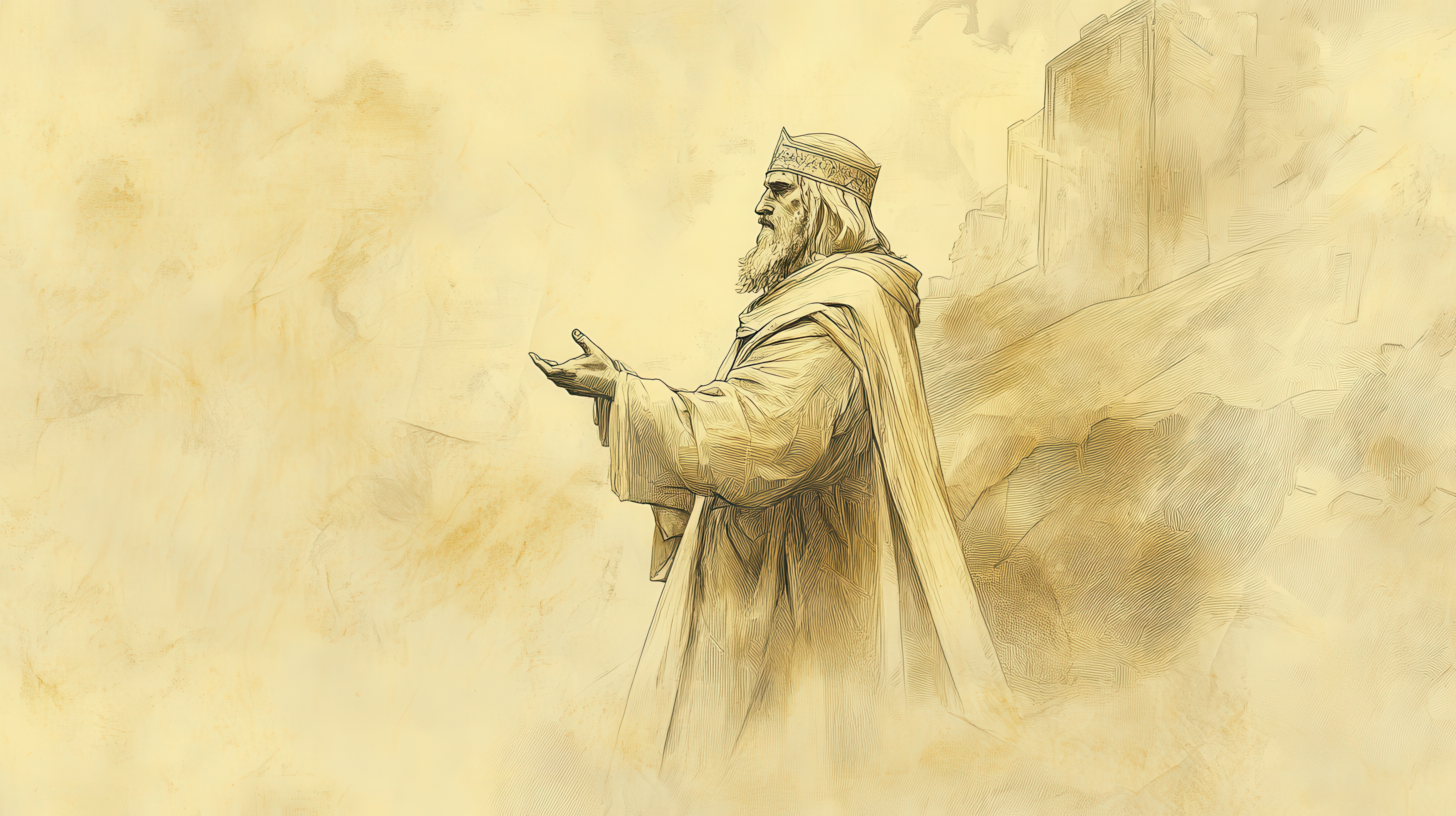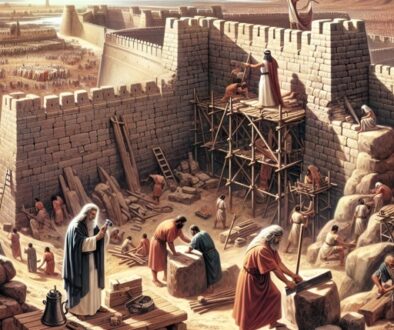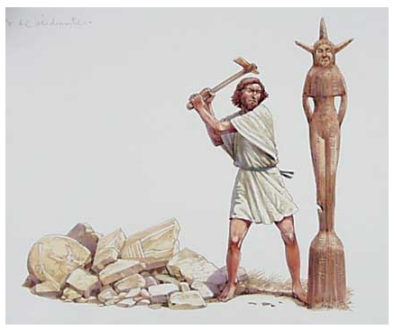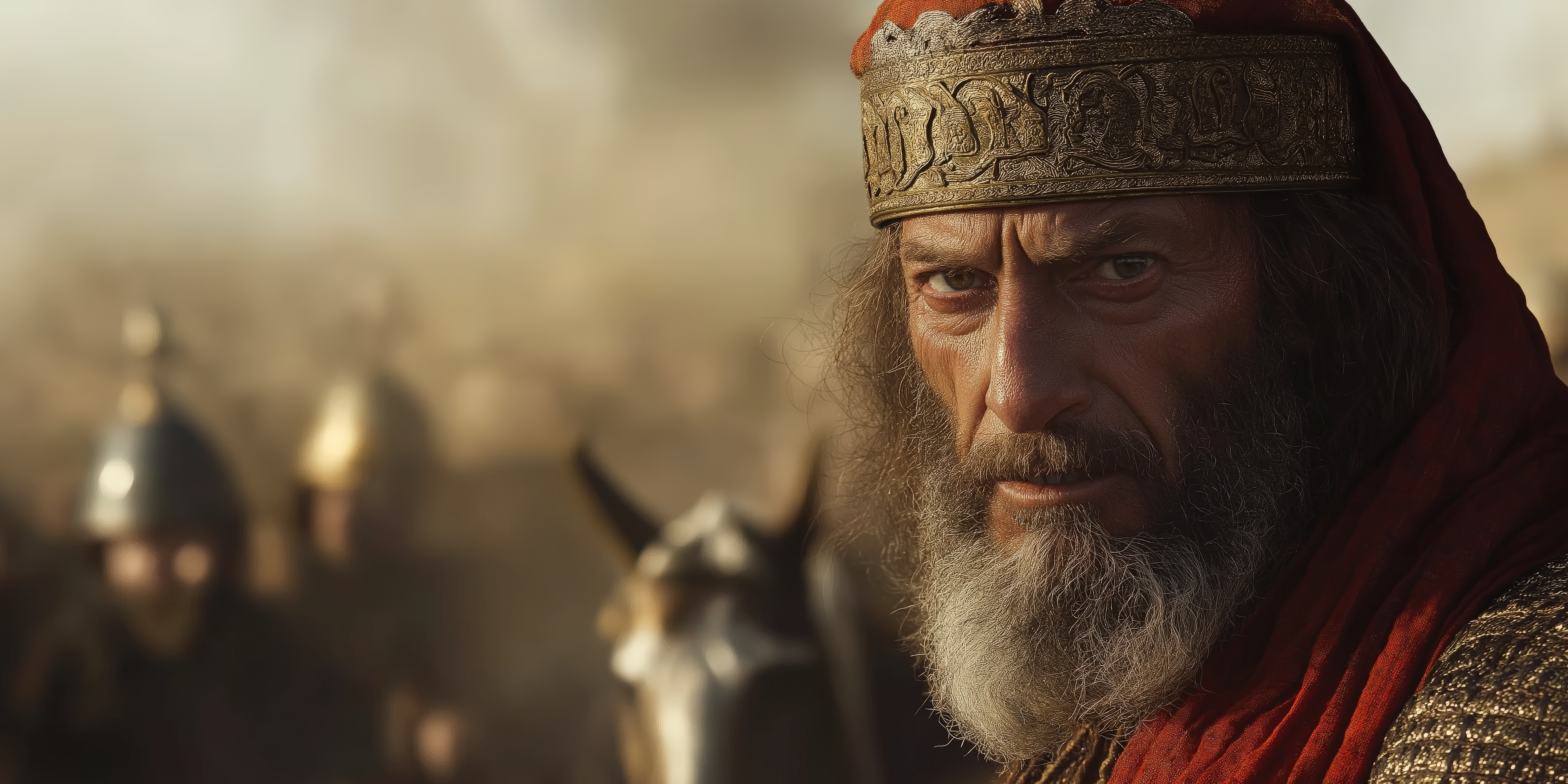1 Kings 15 Nadab
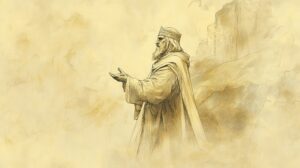
Jeroboam dies after 22 years on the throne. His son Nadab follows him. He will hold the throne for only 2 years before being assonated by Baasha.
God judged Jeroboam for his sin of making the golden calves and causing Israel to bow down to them. Ahijah prophesied that Jeroboam’s family would come to horrible ends. Those who died in the cities, the dogs would eat and those who died in the country, the birds would eat.
We are not told how Jeroboam died, but I noticed something that was suspiciously missing in the report of his death. What is missing is mention of his burial. Usually we see; “________ slept with his fathers and was buried ____________.” Jeroboam gets the first part, but the second part is missing. This leads me to believe that his death was something other than dying in his sleep and that he wasn’t buried. However, his son took the throne after him.
Nadab is not better for Israel than his father was. He didn’t try and bring them back to the Lord. He was happy with the way things were.
We know very little about Nadab. Once might assume that he had wars with Asa, king of Judah, as the two were quite often at odds with one another. But we do know that he warred against the Philistines. During one such encounter is where he lost his life. Not by the enemy but by one of his own men; Baasha. Let’s step into King Nadab’s life and see where the Holy Spirit takes us.
♥ ♦ ♥
Nadab steps into his father’s shoes. He is now king of Israel. Jeroboam was lost in a horrible accident and his body wasn’t found until the animals had already taken much of it. What was left was unceremoniously buried where it was found. Jeroboam’s wife knows in her heart that it is the prophecy of Ahijah coming to pass.
As the eldest, the mantle of leadership falls to Nadab. He is a bit lost. He wants to slap Judah down hard after the last war with his father, but he is still wary of them. He is hoping that since King Asa is new to the throne, maybe there is a chance for peace between the two kingdoms. But he is not betting his life on it.
Several months into his reign, Baasha, the commander of the army of Israel, convinces Nadab to go to war against Judah.
“The people are leaving Israel for Judah. If we don’t prove to them that our gods are stronger, they will return to the God of Judah and we will be bereft of the greatest minds in Israel.”
“How do you propose to stop them? Kill them?”
“No. Engage Judah and king Asa in battle. With their defeat the people will know where the true power lies.”
“This is sound advice. Make it happen. And, Baasha…”
Baasha looks at his king with great interest in what he has to say next.
“… Israel had better win.”
Baasha bows and leaves the throne room. Two days later, Baasha and Israel’s army are on the border between the two kingdoms. Nadab didn’t come with them. Asa is leading his men.
The battle is fierce and sends Israel running from the battle field. The Lord fought for Judah. Exactly what Baasha was trying to disprove. The men of Israel go home in defeat, broken and bleeding. Many men were lost in the battle and it will take time to rebuild their forces.
Baasha is angry with the king. “If he would have come out with us, I’m sure we would have had success. His absence from the battle field robbed his men of their confidence.”
Israel doesn’t go out to fight again until the next spring time. This time Baasha directs Nadab’s attention in another direction. The Philistines had been making small border incursions during the fall. Baasha comes before Nadab to counsel him in matters of the kingdom.
“My king, if we stand idly by the kingdom will crumble beneath you. You must show strength and that you are willing to fight to keep this kingdom strong!”
“And what do you expect me to do? Go up against Judah again and be sent home in defeat a second time? No! I won’t do it! The Lord fights for Judah and we cannot prevail against Him.”
“Then turn to another area of concern and address it in strength and might. Build up the courage of your men.”
“Where would you have us turn?”
“To the nation of the Philistines. They have been trying to push into our territory. Send them a strong message by attacking them in their homes.”
Nadab thinks this over for a minute before agreeing. “This is wise counsel. If we can build the confidence of the men in their gods, then they may once again be strong enough to stand against Judah.”
“It won’t work though, my king, unless you go with them. You remaining here while we go to war speaks of your doubt that they can maintain your safety. It leaches their confidence.”
“I will go with them. I will lend them my strength to bring about victory!”
Israel marches out to Gibbethon that very day. They are ready to show their strength and courage. Nadab rides on his horse in the midst of them. And it brings courage to the men. Camp is set up for the night on the hill facing the city. Nadab calls the commanders together to plan out the attack.
“Baasha, lay out the map and draw out the battle plans.”
Baasha is disgusted with Nadab. It is customary for the king to set the battle plans. He is supposed to be the leader of his people. Or he is at least supposed to LOOK like he is leading them. He could have met with the king privately and formed plans. Then they could have met with the commanders and let the king appear to give the orders. Stepping aside so publicly leaves no doubt as to the king’s ability to lead.
Baasha is not to only one to be thinking along these lines. His commanders hide it well though.
Baasha sets out the order of things for the next day. “We will attack from here, here, and here”, he says while indicating places on the map. “We will reserve one battalion that can be sent to wherever the fighting is the heaviest.”
“I will command that battalion”, offers Nadab.
Baasha is pleased that the king has chosen to lead a battalion.
Morning breaks and Israel moves out to engage the enemy. The men of Gibbethon rush out to meet them in battle. The fighting is fierce. The battalion being held in reserve is straining at their leash to be allowed into the fight. They know that their brothers need them, yet the king holds them back.
“We must wait until we are truly needed. Only if the enemy break through one position do we engage.”
Israel begins losing ground on two fronts before Nadab releases the men to join the battle. Baasha sees Nadab standing on the hill as the men under him rush forward to join the fight. “So much for ‘lending them your strength’” he thinks as he fends off blows.
Israel cannot prevail. Her lines are broken and she begins to flee. As they are retreating, Baasha has one thought in mind. “Nadab is NO king! He must die.”
Nadab turns to flee as the men of Israel draw near his position. All the commanders witness this as well as the men who have survived. Baasha quickly overtakes Nadab. He draws his dagger from his belt and shoves it home into Nadab, in the exposed portion under his arm. Nadab stumbles in mid stride and falls to the ground. Baasha follows him down, retrieves the knife and slits his throat.
“You are no king of mine” he says through gritted teeth. “A king FIGHTS for his men!”
Nadab is left lying dead on the ground as Israel’s army makes its way back home. The commanders gather around Baasha and applaud his actions.
“He was no king. He was as useless as chaff.”
Upon reaching Tirzah, Baasha called for the elders of Israel to come to him. They arrived within two days and Baasha laid out the facts for them.
“Nadab was a child and a coward. He refused to lift a hand in battle, even when his men truly needed him. He had no understanding of running a kingdom or what it means to rule over men. He was felled as he fled before even his own armies. I struck him down for his cowardice. If you will have me, I stand ready to lead Israel in strength!”
“Long live King Baasha” begins to rise up out of the leaders and the military standing nearby. Baasha is anointed king that very day.
The next morning, Baasha is ready to deal with the rest of the house of Jeroboam. If left unchecked, one of them may try and kill him to regain the throne for their fathers. Baasha sends his most faithful men out in search of every man in Jeroboam’s family. By nightfall they all lie dead. And as the Lord foretold, they are left for the dogs and the birds of the air to feast on their remains.
Baasha feels safe as he takes his place on the throne the next morning. “The nation of Israel is in for some big changes”, he thinks to himself.
(to be continued)
I don’t know how much of my story is actually ‘true’, but it is how I imagined Baasha getting to the point of choosing to kill Nadab. I don’t think it happened overnight. Nor do I think it was simply a whim. He had his reasons. Satin certainly had his fingers in it all, but it was the fulfillment of the Lord’s prophecy and plan.
God must have seen something in Baasha to allow him to take the throne and remain there for 24 years. But even he didn’t turn back to the Lord or lead the people to Him. His kingdom would fall just as surely as Jeroboam’s did.
I wonder if Nadab followed completely in his father’s footsteps, or if he was more of “the sins of the father visited on the sons” judgment. I don’t know what God has for us to learn from Nadab other than that His word is true. I don’t know enough about his life to feel comfortable making judgments.
What I feel the Spirit is saying to me today is to hold on. He has a purpose for me, now and in the future. I can only experience it one day at a time though. The valley I’m walking through right now WILL end. There is joy in the morning, no matter what it looks like on the other side of the mountain. He KNOWS what I need and He LOVES me beyond my understanding.
Father God, all I can say is ‘hold me tight’ and ‘hold my husband in the palm of Your hands’. You know my desire Lord is for him to be healed. For the doctors to be able to remove his tumor and for function to return to him. I’m putting him in YOUR hands though Father. YOU know what is best. I TRUST YOU to bring about YOUR best for both of us. Comfort my heart as we walk through this together. And give me peace Father God.

